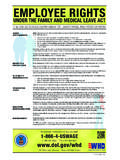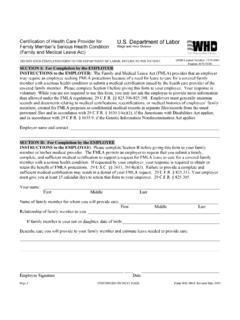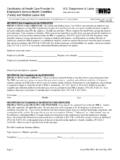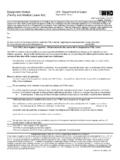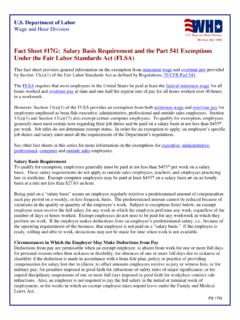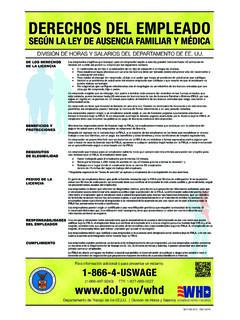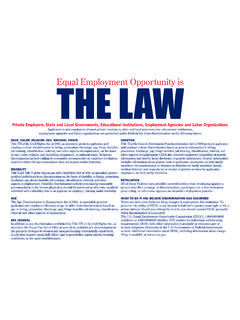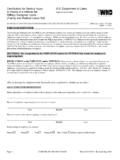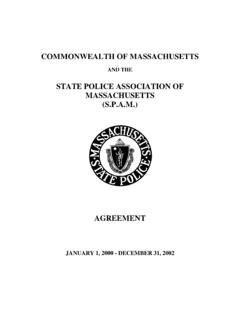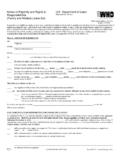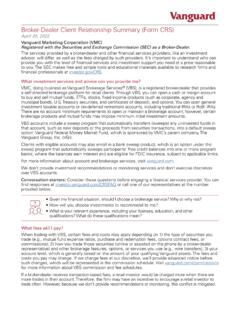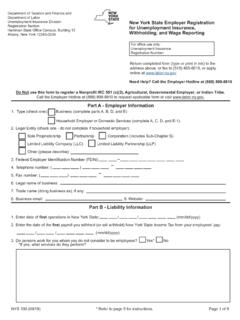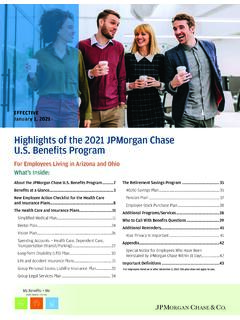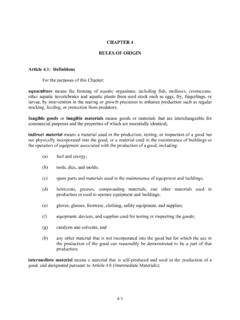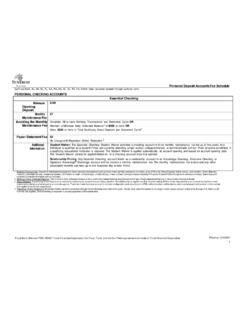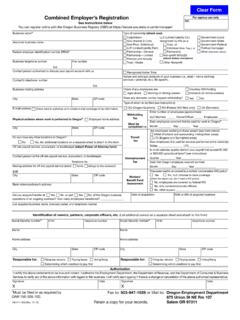Transcription of Know your Rights Pay Transparency - DOL
1 KNOW YOUR Rights Pay Transparency OFCCP Makes it Safe for People to Ask About, Discuss, and Disclose Their Pay 1. What is employment discrimination based on inquiring about, discussing or disclosing my pay or that of other employees? This type of discrimination generally exists where an employer takes an adverse employment action against employees or job applicants because they inquired about, discussed, or disclosed their own compensation or the compensation of other employees or applicants. One example is an employer fring an employee because she discussed her salary with another employee .
2 Another example is an employer decreasing an employee s work hours because he asked his coworkers about their rates of overtime pay. 2. What are my Rights ? Under Executive Order 11246, you have the right to inquire about, discuss, or disclose your own pay or that of other employees or applicants. You cannot be disciplined, harassed, demoted, terminated, denied employment, or otherwise discriminated against because you exercised this right. However, this right is subject to certain limited exceptions. 3. Are contractors prohibited from having formal and informal pay secrecy policies?
3 Yes. Contractors are generally prohibited from having polices that prohibit or tend to restrict employees or job applicants from discussing or disclosing their pay or the pay of others. For example, a contractor s policy that prohibits employees from talking to each other about end- of-the-year bonuses would be considered a violation, as it prohibits employees from discussing their compensation. 4. What is considered pay? Pay generally refers to any payments made to an employee , or on behalf of an employee , or ofered to an applicant.
4 This includes but is not limited to salary, wages, overtime pay, shift diferentials, bonuses, commissions, vacation and holiday pay, allowances, insurance and other benefts, stock options and awards, proft sharing, and retirement. 5. Does the protection include employer defenses or exceptions? Yes. The Executive Order provides contractors with two ways to justify or defend actions taken that might otherwise be seen as discriminatory and prohibited: the essential job functions defense, and the general, or workplace rule defense.
5 6. What are essential job functions under the Executive Order? The term essential job functions means the fundamental job duties of the employment position an individual holds. A job function may be considered essential if: 200 CONSTITUTION AVENUE NW | WASHINGTON, DC 20210 | tel: 1-800-397-6251 | TTY: 1-877-889-5627 | The access to the amount of pay provided to employees or ofered to applicants, salary structures and market studies related pay and policies related to setting or changing employee pay are necessary in order to perform that function or another routinely assigned business task.
6 Or The function or duties of the position include protecting and maintaining the privacy of employee personnel records, including amounts and types of pay provided to employees, salary structures, market studies related to pay, and policies related to setting or changing an employees pay. 200 CONSTITUTION AVENUE NW | WASHINGTON, DC 20210 | tel: 1-800-397-6251 | TTY: 1-877-889-5627 | Revised September 2016 7. What is the essential job functions defense? Under the essential job functions defense, a contractor can defend against a claim of discrimination by showing that it took adverse action against an employee because the employee (a) had access to the compensation information of other employees or applicants as part of his or her essential job duties and ( b) disclosed that compensation information to individuals who did not otherwise have access to it.
7 However, even employees who have access to compensation information as part of their essential job functions may discuss, disclose, or inquire about compensation in some instances. For example, they can: Discuss or disclose the pay of applicants or employees in response to a formal complaint or charge; as a part of an investigation, proceeding, hearing, or action, including an investigation conducted by the employer; or in accordance with the contractor s legal duty to furnish information. Discuss their own pay with other employees.
8 Discuss possible pay disparities involving other employees with a contractor s management ofcial or while using the contractor s internal complaint process. Discuss or disclose amount or types of pay of other applicants or employees based on information received through means other than access granted through their essential job functions. 8. What is the workplace rule defense? Under the workplace rule defense, a contractor can defend against a claim of discrimination by showing that it took adverse action against an employee for violating a consistently and uniformly applied company rule.
9 The rule must not prohibit, or tend to prohibit, employees or applicants from discussing or disclosing their compensation or that of a co-worker or job applicant. Examples of workplace rules may include rules on the use of leave and the length of breaks. 9. Does my employer have to tell me what other employees are being paid? No. Executive Order 11246 does not require employers to provide employees or job applicants with information on the pay of other employees or applicants. 10. Who does OFCCP protect? OFCCP protects the Rights of employees and job applicants of companies doing business with the Federal Government.
10 This includes employees at banks, information technology frms, meat packing plants, retail stores, manufacturing plants, accounting frms, and construction companies, among others. Filing a Complaint 11. What can I do if I believe my employer discriminated against me because I asked about, discussed, or disclosed my pay or the pay of another employee or applicant? You can fle a complaint with OFCCP. You do not need to know with certainty that your employer is a federal contractor or subcontractor to fle a complaint. 12. How do I fle a complaint with OFCCP?
